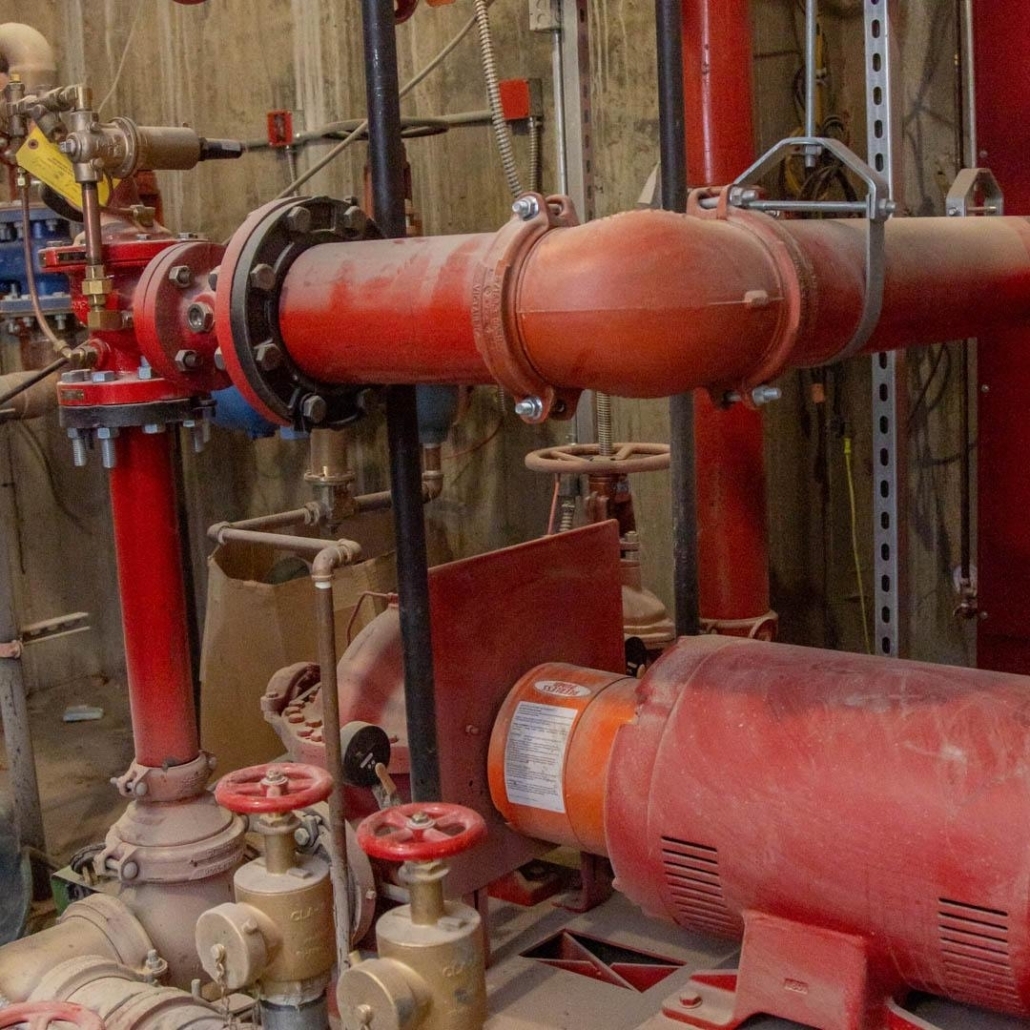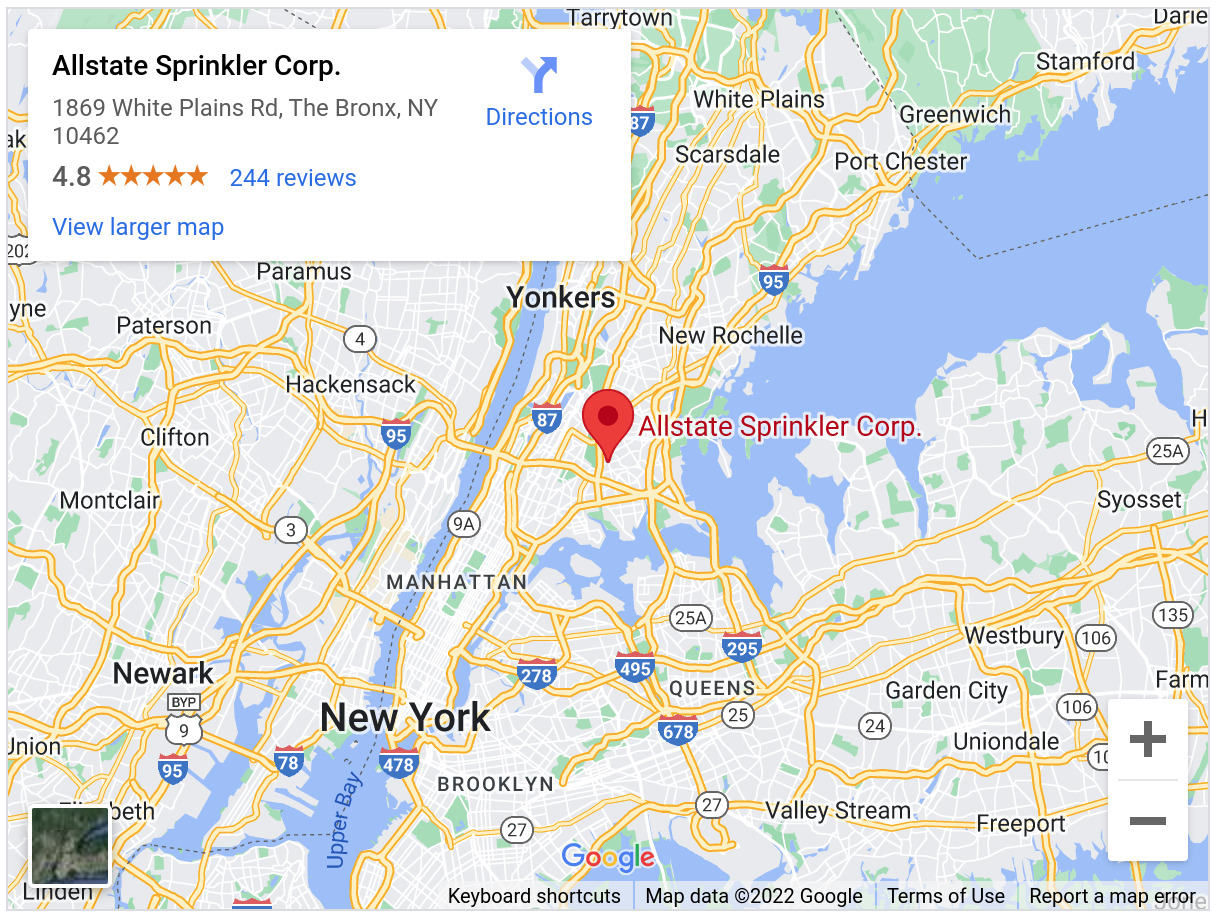Allstate Sprinkler LLC, one of the top Fire Sprinkler Contractors in the NYC metropolitan area, has highlighted the significance of internal obstruction testing and regular flow tests, which can be crucial for commercial fire protection.
Allstate Sprinkler LLC founded in 1972 has grown from a humble family business to become one of the region's premiere Fire Sprinkler Inspection, Testing, Repair, and Service Companies. At the heart of the top-notch services offered by the family business is its commitment to helping the people of the area with their diverse commercial fire protection needs. It has consistently delivered this through its professional service and in-depth training of its employees that have positioned the company as a resource as a New York City Licensed Master Fire Sprinkler Contractor.

Allstate Sprinkler LLC is licensed to and conducts business in the -5- boroughs of New York City as well as Westchester County, Nassau County, Suffolk County, the Lower Hudson Valley, and Northern New Jersey. They have earned the reputation as one of the most responsive, thorough, and reliable Fire Sprinkler Companies in the area. The company is also known for its friendly and expert team of professionals, who are all trained and supervised throughout a comprehensive apprenticeship.
While it brings its impeccable services to the table every time, Allstate Sprinkler LLC also does its best to keep people of the area informed with news, updates, and crucial know-how to avoid any fire losses and keep all equipment and inspections up to NFPA standards. It has regularly offered information on the importance of internal obstruction testing and regular flow tests and stresses that the National Fire Protection Association (NFPA 25) requires a building’s sprinkler system to have a mandated -5- year internal inspection.
Internal obstruction testing and regular flow tests are performed to confirm the systems’ interiors, including piping and components. A comprehensive NFPA 25 inspection can spot any potential blockages in sprinkler piping and confirms that the water flows freely and effectively. Some types of obstruction experienced technicians can spot include rust, slime, microbiologically influenced corrosion (MIC), and other foreign organic or inorganic materials. These obstructions can impact water flow through the piping, which can lead to a dangerous situation.
Allstate Sprinkler LLC has vast experience in NFPA Sprinkler Testing – ready, willing, and able to conduct thorough inspections of gauges, fire sprinkler heads, water storage tanks, etc., along with obstruction investigations. Its expert and well-trained professionals identify the problems and offer the best solutions. Interested clients can reach out via phone call (718-524-3174) and schedule an appointment. Its professionals will visit the location at a time convenient to clients, and offer them a quote for the services they need, which can maintain the longevity of their sprinkler systems.
About Allstate Sprinkler Corp
Established in 1972, the family-owned business has become the leading fire protection contractor in the New York City Metropolitan Area on the back of its impeccable service and top-quality products.
###
Media Contact
Allstate Sprinkler Corp
URL: https://allstatesprinkler.com/
Phone: 718-524-3174
Address: 1869 White Plains Rd. Bronx NY 10462

newsroom: news.38digitalmarket.com
Source: 38 Digital Market News
Release ID: 344254
This content is published on behalf of the above source. Please contact them directly for any concern related to the above.
This press release may contain forward-looking statements. Forward-looking statements describe future expectations, plans, results, or strategies (including product offerings, regulatory plans and business plans) and may change without notice. You are cautioned that such statements are subject to a multitude of risks and uncertainties that could cause future circumstances, events, or results to differ materially from those projected in the forward-looking statements, including the risks that actual results may differ materially from those projected in the forward-looking statements.





